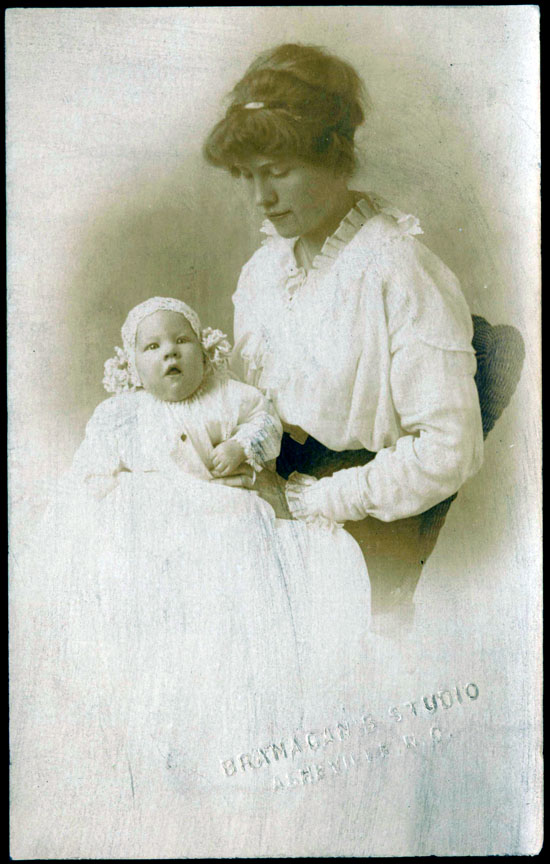In the early 1900s, a woman by the name of Anna Jarvis began advocating for a holiday that would recognize and celebrate the nation’s mothers, both living and dead. By May 1908, according to History.com, Jarvis led the inaugural Mother’s Day gathering at a Methodist church in Grafton, W.Va.
The following year, on May 3, 1909, The Asheville Citizen informed readers that local religious organizations planned “to observe the second Sunday in this month as Mother’s day.” The purpose of the holiday, the paper continued, “is to recall the memories of the mothers that are gone and by loving words and love care to brighten the lives of those that remain.” On that day, the article added, white flowers would be worn “in honor of the pure life of the best mothers who ever lived[.]”
Not strictly a religious movement, The Asheville Citizen noted that prominent citizens and publications were “actively interested in making the day a success.” By article’s end, the paper predicted mothers would receive plenty of “love letters and telegrams from boys and girls who are away from home.” Further, the paper declared, “It will be a day long remembered by all those who observe it.”
The city’s inaugural celebration appears to have been a success. On May 7, 1910, The Asheville Gazette-News reported a growing enthusiasm for the holiday’s second iteration, to be “liberally observed here tomorrow.”
By summer, word spread that another holiday was in the works. On July 14, 1910, The Asheville Citizen reported:
“Mothers’ day has won a place among the annual celebrations in the United States, but any day in which to give father a pat on the back has not been met with loud cheers. This is not to be. It is wrong and Mrs. J. B. Dood, of Spokane, Wash., is going to make it her business to see that father gets a kind word once a year at least.”
Though The Asheville Citizen does not mention Dood hosting a celebration earlier that year, History.com reports she launched Father’s Day on June 19, 1910.
Four years later, on May 8, 1914, President Woodrow Wilson signed an official proclamation that called for “government officials to display the United States flag on all government buildings, and the people of the United States to display the flag at their homes, or other suitable places on the second Sunday in May, as a public expression of our love and reverence for the mothers of our country.”
Another 58 years would pass before President Richard Nixon signed a similar declaration, officially recognizing Father’s Day in 1972.
On May 10, 1914, two days after Wilson’s proclamation, The Sunday Citizen reported on the city’s latest Mother’s Day celebration, declaring:
“The white carnation, typifying the virtues of motherhood, will be in evidence here today, when Asheville ‘mothers’ boys and girls’ will wear the flower in observance of the day set aside as ‘Mother’s Day.’ The flowers whiteness symbolizes purity; its form represents beauty; its wide field of growth, charity; its lasting qualities, fidelity; its fragrance, love. Thousands of flowers were acquired yesterday and last night and the wearers today will include boys and girls, men and women who will wear the carnation for the sake of their nearest, dearest and best friend.”
History.com reports that in 1920, Jarvis disassociated herself from Mother’s Day, denouncing its commercialization.
Editor’s note: Peculiarities of spelling and punctuation are preserved from the original documents.




Before you comment
The comments section is here to provide a platform for civil dialogue on the issues we face together as a local community. Xpress is committed to offering this platform for all voices, but when the tone of the discussion gets nasty or strays off topic, we believe many people choose not to participate. Xpress editors are determined to moderate comments to ensure a constructive interchange is maintained. All comments judged not to be in keeping with the spirit of civil discourse will be removed and repeat violators will be banned. See here for our terms of service. Thank you for being part of this effort to promote respectful discussion.